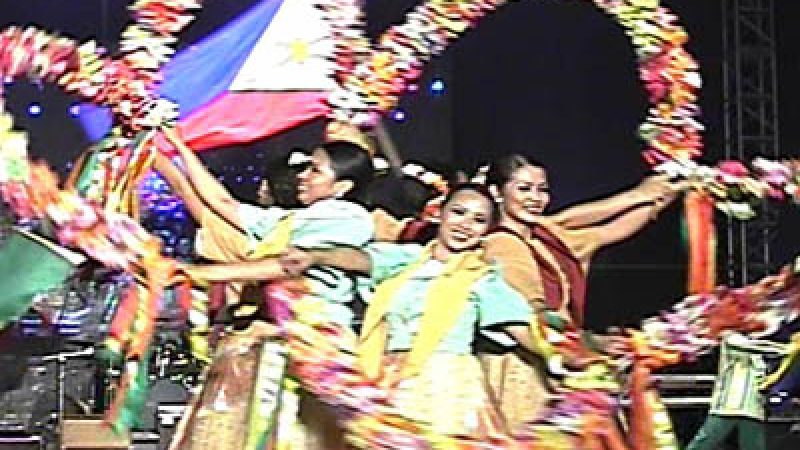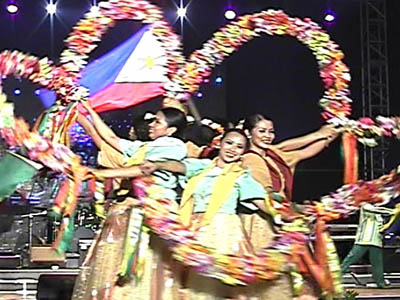
Indonesia: Preserving Traditional Culture through Folk Dance

Modern dance may be the most popular form of dance among youth today, but one festival in Jakarta, Indonesia is trying to turn back the tide. Our Jakarta bureau brings us to the Arsena International Folklore Festival.
Hundreds of dancers from Indonesia, Malaysia, the Philippines, India and Poland, are demonstrating their country’s folk dances.
This is one part of the Arsena International Folklore Festival being held in Indonesia for the second time.
This event helps to strengthen the relationships between countries through cultural performances, and helps to popularize traditional dance forms.
[Noviarifta Ilyas, Arsena International Folklore Festival]:
“I see the younger generation today becoming more ignorant of their traditions under the impact of modernization. So I chose to start and effort to revive traditional dance, the genuine traditional folklore dance.”
Besides showing many beautiful dance movements, folklore dance has the ability to tell each country’s stories of history and culture.
The songket dance from Malaysia, for example, tells about the history of the sarong, which is now Malaysia’s national costume.
If you are interested in the history of Poland, these Polish dancers are ready to perform the polonaise, a dance that illustrates the history of Poland’s people.
Then we have the jota quirina dance from the Philippines.
This dance, popularized in the 19th century, tells about traditional bamboo games and the way of life in the Philippines at that time.
The performers feel that traditional dance has the ability to show the identity of a nation and traditional culture in the most perfect way.
[Lucas, Polish Dancer]:
“We preserve our culture. It’s our traditional dances. It’s for future generations.”
[Jill Alyana Tanig, Philippine Dancer]:
“I choose to dance Philippines traditional dances, it’s because it describes who we are as a Filipinos, it shows our culture, it shows our history, who we are in the Philippines.”
NTD, Jakarta, Indonesia.
 (NTDTV)
(NTDTV)



![[Live] Magdeburg: Pressekonferenz mit Polizei und Staatsanwaltschaft](https://images-de.epochtimes.de/uploads/2024/12/THUMB-PK-Magdeburg-400x225.jpg)























vielen Dank, dass Sie unseren Kommentar-Bereich nutzen.
Bitte verzichten Sie auf Unterstellungen, Schimpfworte, aggressive Formulierungen und Werbe-Links. Solche Kommentare werden wir nicht veröffentlichen. Dies umfasst ebenso abschweifende Kommentare, die keinen konkreten Bezug zum jeweiligen Artikel haben. Viele Kommentare waren bisher schon anregend und auf die Themen bezogen. Wir bitten Sie um eine Qualität, die den Artikeln entspricht, so haben wir alle etwas davon.
Da wir die Verantwortung für jeden veröffentlichten Kommentar tragen, geben wir Kommentare erst nach einer Prüfung frei. Je nach Aufkommen kann es deswegen zu zeitlichen Verzögerungen kommen.
Ihre Epoch Times - Redaktion